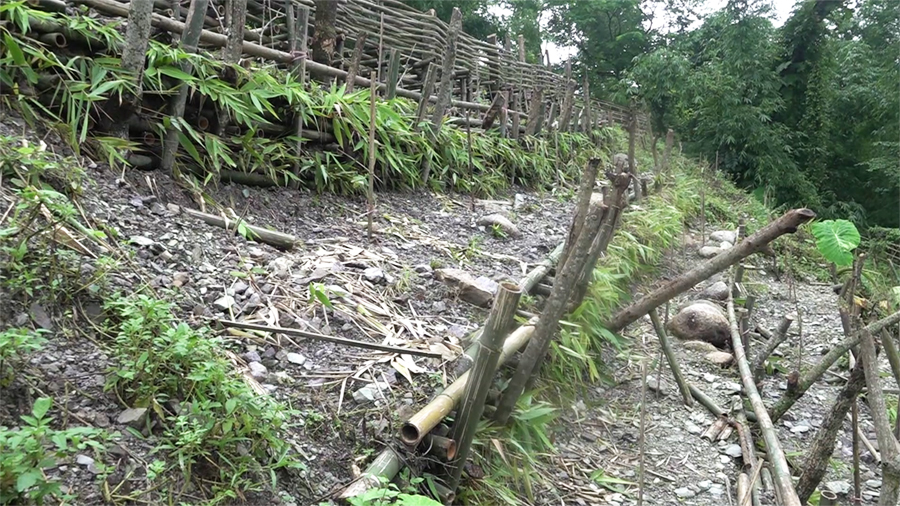
At this time of the year, the people of Koenchholing and Risumgang Chiwogs of Sarpang’s Shompangkha Gewog worry about landslides from heavy monsoon rains washing away their farm road. However, the Shompangkha Gewog administration’s bioengineering land development technique is proving to be effective. Despite the continuous heavy showers, there have been no further reports of soil erosion or landslides.
 The Shompangkha Gewog administration used a bioengineering land development technique to stabilise the land last month.
The Shompangkha Gewog administration used a bioengineering land development technique to stabilise the land last month.
In this technique, they use locally available resources like small trees, bamboo, shrubs and hedges to reinforce the unstable areas.
“Many farm roads were built in very risky areas in the past where there is often no stable base for constructing a concrete wall. Additionally, building concrete walls is very costly. However, with thorough investigations, support from technical experts and effective communication with the gewog and project authorities, we can find sustainable, low-cost solutions to this problem,” said Ashman Rai, Shompangkha Mangmi.
“With the water entering the sinking area, cracks have started to develop. Despite efforts to fill the land over the past two years, it couldn’t prevent landslides. They built a wall which has helped. But this year’s land management work seems to be an even better and more effective solution,” said Tularam Tiwari, a resident of Koenchholing village.
The 14-kilometre farm road benefits more than 130 households of Koenchholing and Risumgang Chiwogs. It stretches from the Gelephu-Sarpang highway to Risumgang village.
The farm road was blacktopped in 2021 as part of the Sustainable Land Management Project, funded by the Green Climate Fund at Nu 250,000.
Community members contributed labour by planting trees in landslide-prone areas.
Karma Wangdi, Sarpang
Edited by Sonam Pem










